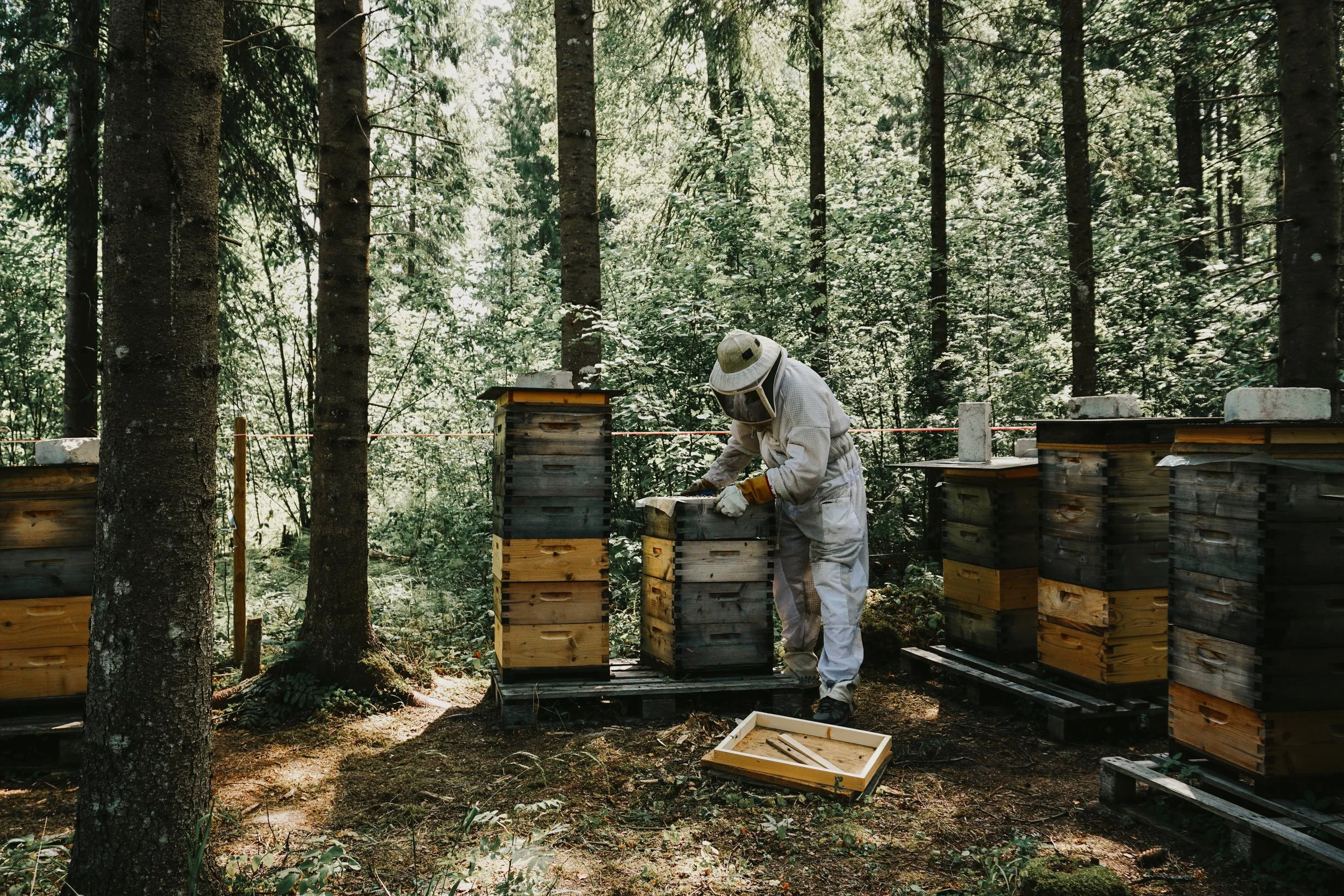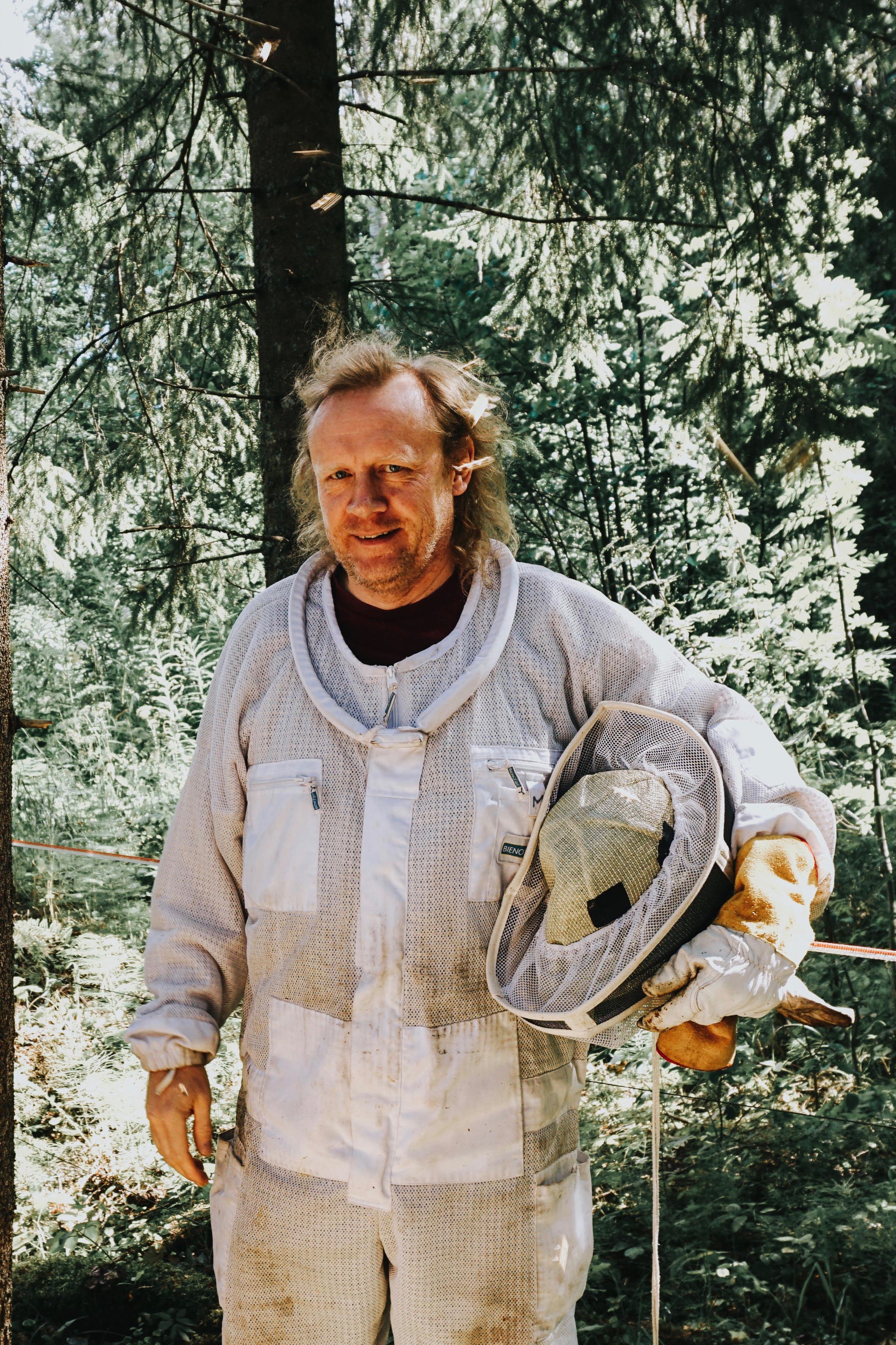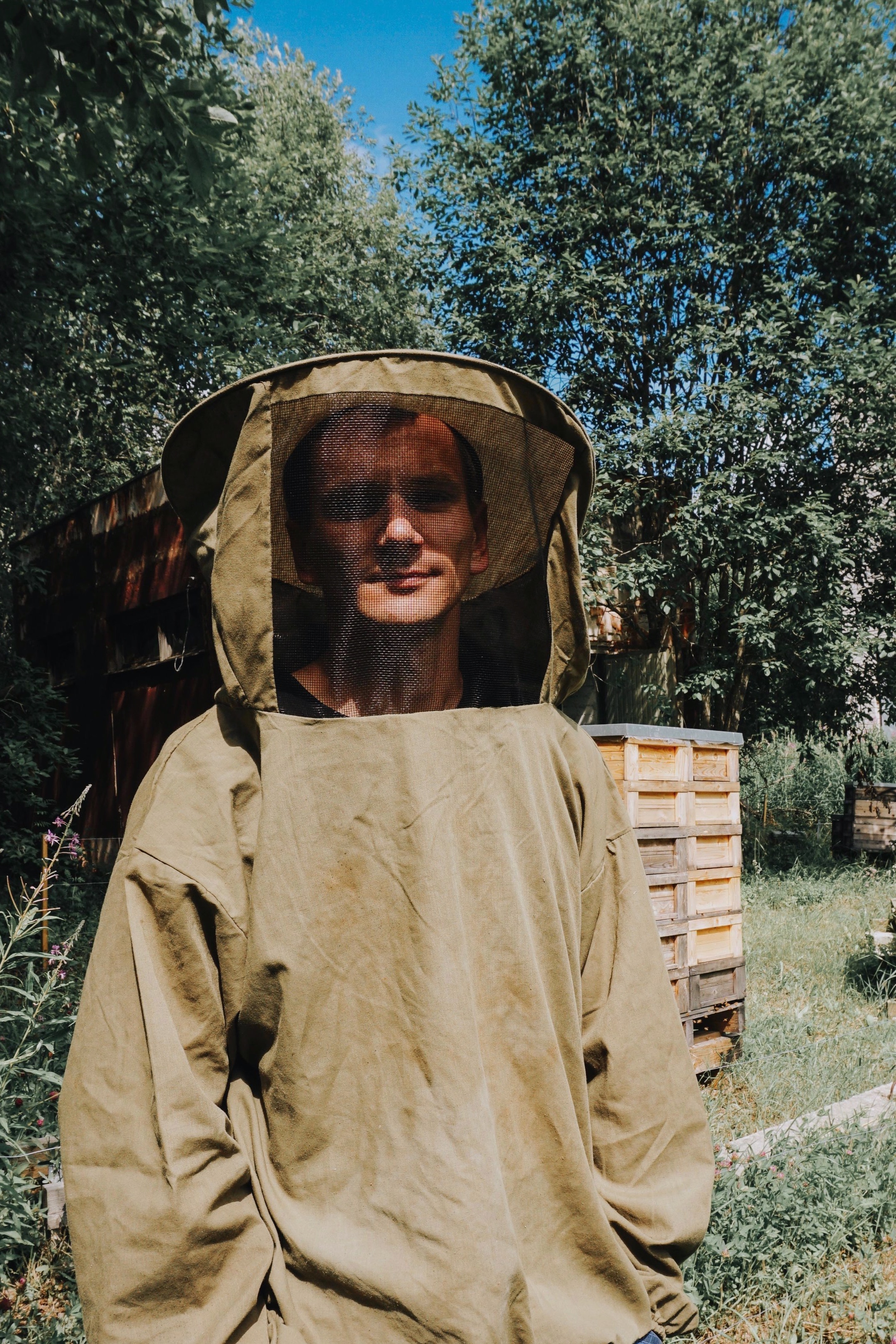We want you to meet Mehis and Harro, two of Nordic Honey beekeepers whom we visited in the end of July. We spent a lovely day with them, visiting bees and seeing the whole production of Nordic Honey from beginning to end. Not wanting to miss the chance, we asked our beekeepers lots of questions so that we could share them with you and enlighten you about organic beekeeping and our busy honey bees!
Becoming A Beekeeper
Mehis and Harro have both been beekeepers for about 10 years. Mehis discovered it thanks to his brother Andres, who decided to get himself a hundred bee colonies out of nowhere! Wanting to help his brother out, Mehis started to take care of the bees every now and then. Soon he found out that beekeeping is exactly the hobby he’s been looking for and went to study it further in Karjala, where he also learned about organic beekeeping. He says that he forgets about everything else when he’s taking care of the bees, they are always up to something and never bore him. He loves that every year presents new challenges for him.
Harro’s story is quite similar. One day his friend Mart asked Harro to help him with woodwork at the countryside, to be exact they were building beehives that day. He spent one weekend there and eventually all the other weekends as well. Harro found out that beekeeping is an amazing excuse to escape the city and spend some time at the countryside, enjoying fresh air and doing something with your own hands.
A Day In The Life Of A Bee
A honey bee colony consists of three kinds of bees: female worker bees, male drone bees and the queen bee. There are about 50 000 bees in one colony and 20 000 of them are female honey bees who collect nectar and pollen from flowers.
Every morning the sun starts shining and warming up beehives. This is the sign for the bees to start their work day. Drone bees’ only job is to mate with the queen bee so that she could lay eggs. Worker bees have different kinds of jobs that change during their lifetime. Some of them feed the larvae, take care of the queen and keep the hives clean, others make honeycombs and gather nectar. Mid-day is the busiest time for the bees. Forager bees fly out to gather nectar and bring it back to the hive to regurgitate it into a cell of the honeycomb and eventually turn it into honey. An average worker bee lives about six weeks and produces 1/12 teaspoons of honey during its lifetime. Some days are busier than others and forager bees even have to work during evenings, on these days they fly to the nearest beehive to give away their nectar. Every night they fly back into their own beehive. You might think that during night-time bees sleep, but actually it’s not true. They do rest, but not necessarily at night.
Getting Stung By Bees
There are lots of misconceptions surrounding bees and beekeeping. Lots of people are afraid of bees, because nobody likes to get stung. This is also the reason why some might think that beekeeping is a dangerous job. In reality it’s only dangerous when you’re allergic to bees. Bees only sting when they sense danger, so their instinct tells them to protect their colony. The stinger then stays inside the victim’s skin and the bee dies. It is said that up to 16 stings in a day is “normal”, some sources even say that it’s healing to your body!
Like all the other people, our beekeepers were also afraid of getting stung when they started taking care of the bees. Eventually you’ll learn to interact with bees and they will also get used to you, so you’re not scared of getting stung anymore, but it will still happen. Both Mehis and Harro say that there aren’t many days when they don’t get stung. Mehis adds that this year he had one such day when he didn’t get stung…
Everybody Can Be A Beekeeper
Our beekeepers encourage everybody to start beekeeping. Mehis says that it’s ok to make mistakes, “bees are ancient organisms who will survive almost any beekeeper”. Bees have indeed been living on earth about 30 million years. However when starting with beekeeping, Mehis suggests getting a peaceful queen bee, because she influences all the other bees growing in that colony. He warns about letting your bees swarm, which means that a group of honeybees split-off from a strong mother colony and fly away to find a new hive. He doesn’t suggest using this method to populate hives, because this way the new colony grows big, takes honey with them and flies away.
Mehis’s favourite part of his job is caring for honeybees when it’s sunny outside and the bees are calm, then he can peacefully look though all the colonies. Harro loves it when it’s time to carry all the hives to the warehouse, and he can feel how heavy and full of honey they are. That’s the moment when he can see the fruit of his hard work and be content.
The least favourite part of his job in Mehis’s opinion is spinning the honey, while Harro dislikes carrying empty hives back and forth. He says, “I’d rather carry the hives when they’re 20kg heavier and full of honey”.
Knowledge From Beekeepers
We asked our beekeepers what’s that one thing people should know about bees and honey. Mehis stated the fact that honey is a very important medicinal food, especially here in the Northern countries. He also thinks that everybody should know that they shouldn’t heat honey. So before you add it to your tea or coffee, wait until the liquid has cooled down a bit, otherwise you’ll lose about 20-30% of the healing benefits of honey.
Harro wants to remind everybody that crystallizing is a sign of good quality honey. A honey that stays liquid for a long period of time is probably processed and during that procedure lots of healing benefits of honey have been lost.
Thanks for meeting our beekeepers, hopefully you got lots of useful information from them! Maybe they even inspired you to take up beekeeping or at least made you want to eat a few spoonfuls of organic honey. PS! If that’s the case then take a peek at Nordic Honey online store :)
Let us know in the comments if you have any interesting questions you didn’t find answers to!
At Nordic Honey, we partner with a handful of small local apiaries to offer only organically certified honey of the highest quality. Visit our online store for the world’s best Organic Gourmet Honey!
To be up to date with all our news and blog posts, please follow us on Instagram, Facebook, Twitter, Pinterest, or sign up to our email newsletter.


